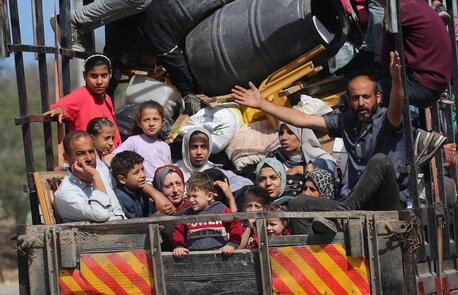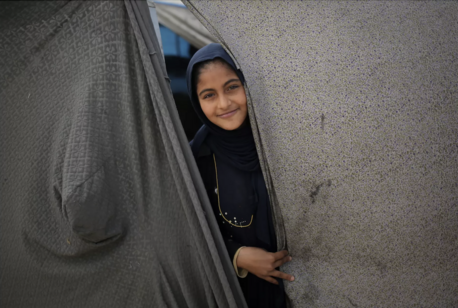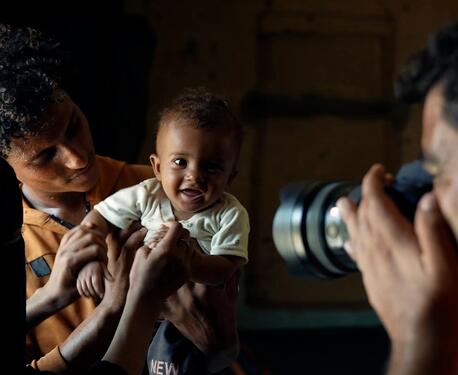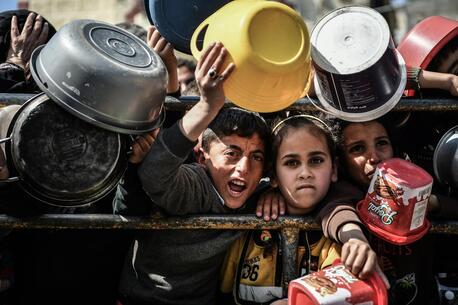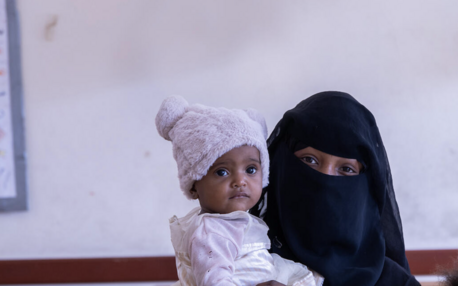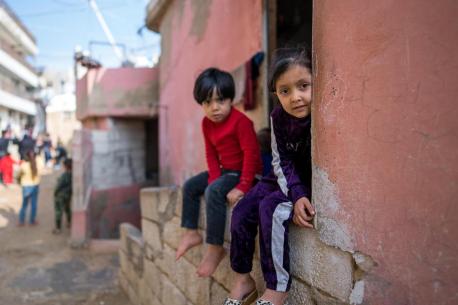
UNICEF in Lebanon
Persistent and compounding crises are threatening to derail children's futures. A look at what UNICEF is doing to support the most vulnerable.
Lebanon: a crisis for children on multiple fronts
The situation continues to deteriorate for children in Lebanon, the result of a cascading series of political and economic crises in recent years, the impacts of which have been unrelenting.
An estimated 1 in 7 people in Lebanon are refugees, mostly Palestinian and Syrian, the highest per capita concentration of refugees in the world.
The physical and emotional toll of chronic deprivation and uncertainty have left children hungry, anxious and depressed. Many have been stripped of their education and forced into child labor.
“This terrible crisis is relentlessly gnawing away at childhood," Edouard Beigbeder, UNICEF Representative in Lebanon, says. "Its severity is crushing children’s dreams, and taking away their learning, their happiness and their future.”
A Middle Eastern nation located on the eastern shore of the Mediterranean Sea, Lebanon — like neighboring countries in the region — is also experiencing growing social tensions related to the Gaza crisis, especially on its southern borders.
A majority of children living in Lebanon lack essentials
These and other challenges have pushed families to the breaking point.
An overwhelming majority of households — more than 8 in 10 — find themselves borrowing money or using credit to buy essentials. Almost 9 in 10 households no longer have enough money to buy essentials. A growing number of families are sending their children — some as young as 6 – to work.
Meanwhile, the number of children missing out on an education continues to rise, with more than a quarter of households reporting that their school-aged children are not attending lessons, mainly because they cannot afford to pay the school fees. Among Syrian refugees, the proportion of out-of-school children is over half.
Several dozen schools in the southern part of Lebanon have been closed for extended periods due to rising hostilities and conflict relating to the crisis in Gaza. Thousands of children who have been displaced remain out of school.
“I just want my children to live their childhood, to play and learn,” one Lebanese father of three told UNICEF.
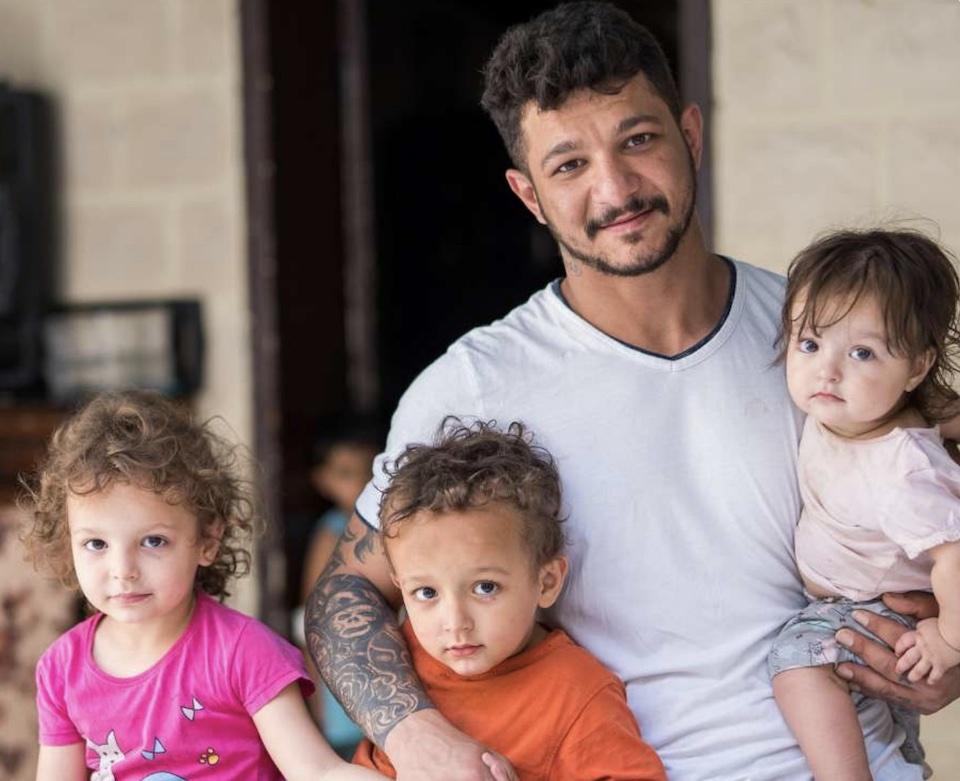
Over half the population lives in poverty
Lebanon’s economic tailspin began in October 2019, after new tax measures prompted massive protests, the resignation of the cabinet and prime minister and a protracted political stalemate.
In August, 2020, a massive explosion in Beirut’s port killed over 200 people, injured more than 6,500 people and left 300,000 homeless. The COVID-19 pandemic further added to the strain.
Today, more than half of the Lebanese population lives below the poverty line; the vast majority of refugees live in extreme poverty.
The toll on children's mental health
Economic pressures at home are taking a toll on children's mental health.
Almost 4 in 10 households say their children are anxious, and almost one-quarter say their children are depressed daily.
In southern Lebanon, mental health is impacted even more by hostilities. Almost half of families in this area report their children are anxious, with over one-third feeling depressed. A rising number of children in Lebanon are losing hope that their circumstances will improve.
“My children are living a cruel life," one Lebanese mother of two told UNICEF. "They are living in deprivation and fear — fear more than deprivation."
How UNICEF is helping children and families in need in Lebanon
UNICEF is on the ground in Lebanon working with partners to meet the urgent needs of hundreds of thousands of children and families by providing a range of services and support across all major program areas. Efforts include:
Health, immunization and nutrition
- supporting mental health and psychosocial support services for children and caregivers
- supporting the procurement of essential medications and medical supplies for primary health care centers, as well as stocking emergency health care supplies and equipment at health centers in southern Lebanon
- facilitating improved access to vaccination services to reach hundreds of thousands of children across the country with routine essential vaccines through mobile vaccination units
- equipping hundreds of primary health care centers with solar equipment and power supply — including solar fridges that safely store vaccines — to reduce costs and ensure immunization and essential services are not interrupted
- providing micronutrient supplements to improve nutrition for tens of thousands of children under age 5
- screening hundreds of thousands of children and providing treatment to acutely malnourished children
- offering nutrition counseling for caregivers of children under 5 in shelters and host communities in southern Lebanon
Water, sanitation and hygiene (WASH)
- rehabilitating multiple wastewater treatment plants
- supporting the repair and maintenance of water infrastructure
- helping to provide chlorine for water treatment to ensure safe drinking water supply across the country
- ensuring the availability of fuel to support uninterrupted water supply in the event of power outages in the south
- conducting emergency repairs on damaged water stations
Child protection and safeguarding children's rights
- supporting child protection services, including gender-based violence prevention and response
- partnering with the Ministry of Information and local media to protect children and adolescents from media risks and to advocate for their rights
- rolling out a child protection policy in education as a catalyst for violence-free schools; this calls for addressing situations of violence through early identification, and a functioning referral system, while protecting the privacy of students and their parents and caregivers
- engaging hundreds of religious leaders to strengthen their role in promoting and protecting children’s rights, applying UNICEF’s framework for social and behavioral change
- training hundreds of child justice-related professionals on children's rights in justice proceedings
- supporting hundreds of thousands of young people through volunteer and role model programs that promote and encourage positive behaviors, volunteerism, life skills, youth engagement and sustainable social change
- collaborating with the government of Lebanon to launch the country’s first-ever National Disability Allowance, together with the ILO, the EU and civil society groups
Education
- supporting public schools to facilitate student enrollment, via direct support and other funding for teacher salaries and parent councils
- training tens of thousands of teachers in learning recovery and addressing learning losses that stemmed from pandemic school closures
- enrolling hundreds of children with disabilities in public education and therapy sessions
- providing Cash for Education assistance to eligible families with children, including refugees and children with disabilities
- rehabilitating, constructing and upgrading public schools with solar power to save money and ensure a continuous supply of clean energy
- distributing essential school supplies and digital learning tools, as well as offering psychological support to children who have been displaced or whose schools have been closed
- providing incentives to educators in southern Lebanon to stay on the job
UNICEF remains at the forefront of the response to multiple crises impacting all children in Lebanon, regardless of nationality.
Increased donor support can help scale assistance programs and reach the most vulnerable children and families in need.
"The daily suffering of children must stop,” Beigbeder says. "We must redouble our efforts to make sure every child is in school and learning, is protected from physical and mental harm and has the opportunity to thrive and contribute to society."
Unrestricted donations give UNICEF the flexibility to direct resources wherever they are needed most. Your contribution can make a difference. Donate today.
